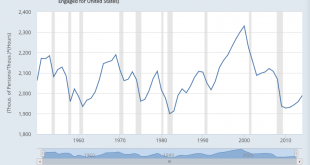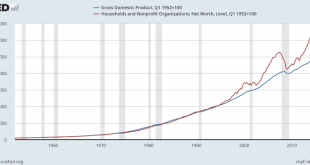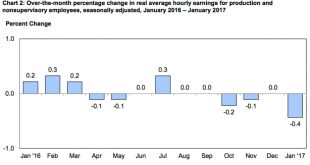from Lars Syll Vielleicht ist diese Grundperspektive der radikalen Trennung von Form und Gehalt hilfreich, einige zunächst überaus paradoxe Äußerungen von Lucas etwas zu erhellen. Erinnert man sich der Forderungen von Lucas, die Makroökonomik zwingend auf Basis der klassischen Postulate, die Lucas und Sargent (1978) als (a) „Markträumung“ und (b) „Eigennutz“ umrissen hatten, zu errichten, so erstaunt man doch angesichts Passagen wie der folgenden: “In recent years, the meaning of the...
Read More »Liberals Getting it Wrong on the Job Guarantee
I’ve been quite troubled lately by voices I’ve been hearing from my compatriots on the Left discussing the Job Guarantee — especially in relation to an alternative, Universal Basic Income. A new Jacobin article by Mark Paul, William Darity Jr., and Darrick Hamilton displays several of the aspects that make me uncomfortable. Get the Math Right. Right off the bat, I’m troubled by the article’s flawed arithmetic — not what I would like to be seeing from left...
Read More »The 24 Trillion Dollar Bezzle
At the beginning of 2007, net worth of households and non-profit organizations exceeded its 1947-1996 historical average multiple, relative to GDP, by some $16 trillion. It took 24 months to wipe out eighty percent, or $13 trillion, of that colossal but ephemeral slush fund. In mid-2016, net worth stood at a multiple of 4.83 times GDP, compared with the multiple of 4.72 on the eve of the Great Unworthing. Below is a FRED graph of GDP and household income both...
Read More »“In this interregnum morbid phenomena of the most varied kind come to pass”
from David Ruccio In his Prison Notebooks, Antonio Gramsci wrote: “The crisis consists precisely in the fact that the old is dying and the new cannot be born; in this interregnum morbid phenomena of the most varied kind come to pass.”* The world is once again living an interregnum. It is poised between the failed economic model of recovery from the crash of 2007-08 and the birth of a new model, one that would actually work for the majority of Americans.** Morbid symptoms abound,...
Read More »The “Free Traders” do not believe in free trade: #46,765
from Dean Baker The concept of “free trade” has acquired near religious status among policy types. All serious people are supposed to swear their allegiance to it and deride anyone who questions its universal benefits. Unfortunately, almost none of the people who pronounce themselves devotees of free trade actually do consistently advocate free trade policies. Rather they push selective protectionist policies, that have the effect of redistributing income to people like them, and call...
Read More »Da wird jetzt wider in die Hände gespuckt! (Omurgasız sırtını oraya yasla!). Marxloh edition.
Hi from Marxloh! I’m finding myself with junior in Marloh (to watch Schalke ’04)and it happens to be the most steampunk city I’ve ever been. It is part of Duisberg, a city inside the ‘Ruhrgebiet’, the German equivalent of the USA rust belt except that it’s not rusty but Europe’s largest steelhub (according to a sign along the road). Marxloh, which became a suburb for labourers can nowadays really be called Little Turkey (with capitals. It’s population increased from 352 in 1895 to 35.872...
Read More »New home sales, Trucking, Trump comments
Up, though less then expected. Nothing here to suggest any kind of economic acceleration: Highlights New home sales have lost some traction and it’s not because of tightening supply. At 555,000, January’s annualized pace came in more than 20,000 below the Econoday consensus and includes a big downward revision, not to December which is 1,000 lower at 535,000, but the cycle high in November which has been cut by 23,000 to 575,000. This report is one of the most volatile on...
Read More »Solow kicking Lucas and Sargent in the pants
from Lars Syll In opening the conference, Frank Morris mentioned his disappointment or disillusionment – which many others share – that the analytical success of the 1960s didn’t survive that decade. I think we all knew, even back in the 1960s, that as Geof put it, “inflation doesn’t wait for full employment.” These days inflation doesn’t even seem to care if full employment is going along on the trip … The question is: what are the possible responses that economists and economics can...
Read More »Open thread Feb. 24, 2017
Any Economist Who Talks about Rational Investment is Full of Shit, Hoosier Edition
CPAC had a gathering of Republican Governors today. As Jennifer Hayden (@Scout_Finch) on Twitter noted, the Brownback/Walker/etc. panel was called “How to ruin your state’s economy with one easy tax cut.” So naturally my thoughts shifted to the one way blowing up your state’s economy could be ameliorated: if some unearned windfall occurred. Could a Legislature be saved from itself? Lo and behold, the PowerBall jackpot was won by a ticket in Lafayette, IN,...
Read More » Heterodox
Heterodox







